On Memes and Movements and Moving Home
I’d like to start by saying, in my defense, that I tried to be timely about this piece.
I had a draft written, complete with a somewhat comprehensible intro, that was very rooted in 2019. And, then, a few days before our publish date for this issue, my phone chirped for my attention; I reflexively looked down to read, “A Professor Told His Students ‘OK Boomer’ Is as Offensive as the N-Word,” and here we are.
The aforementioned headline was from a February 12, 2020 Time article about a recent incident at the University of Oklahoma. Professor Peter Gade reportedly equated firing off an “OK Boomer” to using a racial slur steeped in centuries of oppression, dehumanization, and literal enslavement.[1] His apology, which was widely shared via Twitter, seems to address his use of the N-word,[2] while bypassing the ridiculousness of the comparison at the root of his argument all together.[3]
Boomers gonna boom.
While Gade’s particular opinion is asinine, it also illustrative of a larger Boomer response that has been manifesting online and over dinner tables for the past several months. Why are Boomers so thoroughly, and seemingly authentically, shook by OK Boomer?
As Andrew Ferguson contends in his article “Everyone Hates the Boomers, OK?” in many ways OK Boomer is an extension of, and a response to, the “generational antagonism” that Boomers steadily fed in the first place.[4] Millennials are snowflakes, Gen Z is full of technology-addicted Peter Pans (and, as usual, Gen X is presumed to be doing something off-screen).
So, what’s the big deal? Baby Boomers can dish it out, but they can’t take it? I mean, yeah, maybe. Probably. Rest assured, a fair amount has been written about why Boomers may be particularly sensitive to Gen Z critique: Baby Boomers were taught to respect their elders;[5] they are deeply invested in the prevailing establishment; they genuinely don’t understand how dire our current political/climate situation is.[6] And I don’t disagree with any of those theories, I just think there might be more to the story.
As I watched the OK Boomer meme enter the zeitgeist, I happened to see it from a particularly close vantage point. I haven’t become a Boomer, but I’ve done the next best thing; I’ve moved back in with my parents.
And I found that my Baby Boomers, with whom I share a majority of political opinions, and from whom I straight-up copied my self-deprecating sense of humor, were intermittently apoplectic about OK Boomer. I mean, my dad’s nickname is “Dirt;” these are not people who take themselves too seriously. So, what in the hell was going on?
I started to think less about the content of OK Boomer, and more about the form. OK Boomer is more than a phrase; it’s a meme. It travels, and proliferates, and evolves like a meme.
But what does that mean?
The term “meme” (rhymes with gene) was first coined by evolutionary biologist Richard Dawkins in his 1976 book The Selfish Gene. Dawkins conceived of memes as units—cultural ideas or behaviors—that replicate by Darwinian evolution through communication or imitation. Dawkins’s memes, similarly to genes, succeed when they thrive in a host and are readily spread to nonhosts. Unsuccessful memes fail to take root in nonhosts, and die off.[7] Successful memes often “’program’ for their own retransmission.”[8] If, for example, a meme results in the host producing more offspring than nonhosts, it is more likely to be successful. The Selfish Gene gave rise to the field of memetics: the study of the self-replication, mutation, and proliferation of memes throughout cultures.[9]
Obviously, memetics developed in the pre-Internet era. By the time the web rolled around, it had, as a field, been through its fair share of ups and down. However, the term “meme” itself was quickly taken up by netizens to describe “a particular idea presented as written text, image…or some other unit of cultural ‘stuff’”[10] that appeared and circulated online.[11]
If you’re already familiar with the concept of Internet memes (referred to in the rest of this piece as simply memes), then you may, when you hear the term, picture an animal with text superimposed over it. This is called a “Stock Character Macro Meme,” and it has been a particularly popular meme format for over a decade.[12]
However, memes can take any number of forms, including, but not limited to, videos, video stills, GIFs, text, catchphrases, songs, photographs, illustrations, and/or jokes. For the purposes of this article I’m utilizing Limor Shifman’s definition of an Internet meme, from her book Memes in Digital Culture:[13]
-
a group of digital items sharing common characteristics of content, form, and/or stance, which
-
were created with awareness of each other, and
-
were circulated imitated, and/or transformed via the Internet by many users
Implicit in Shifman’s definition is a particularly important distinction between virals and memes. While a single image can go viral, and be circulated to millions of internet users, it is not a meme. Memes exist in a group; they require mimicry and remixing and contextual awareness.
Like many memes, OK Boomer seems to have originated as a comment by an anonymous user on 4chan way back in 2015.[14] This snide and dismissive response served as an effective and eviscerating way to shut down conversation with Internet users who appeared to be out of touch. Then, in 2019, OK Boomer experienced a sudden uptick in popularity on TikTok; users created their own content and remixed the popular Peter Kuli & Jedwill song “OK BOOMER!” in order to level complaints against older generations.[15]
Before long the OK Boomer meme had been thoroughly merchandized, with everything from hoodies, to water bottles, to leggings available for purchase through sites like Redbubble and Spreadsheet.[16] The meme perhaps reached peak visibility via mainstream news channels when Chlöe Swarbrick dispatched it during her speech on climate change in New Zealand’s Parliament on November fourth 2019[17] It started to feel like OK Boomer was everywhere: online and IRL.
This feeling of omnipresence is common in meme culture. Shifman refers to it as a feature of the “hypermemetic” state. She says, “memes are present in the public and private sphere not as sporadic entities but as monstrously sized groups of texts and images.”[18] She notes that through social media, “memes can scale up to mass levels within hours,” which is part of the reason that meme culture seems to shift and evolve so quickly.[19]
As An Xiao Mina contends, in her book Memes to Movements: How the World’s Most Viral Media is Changing Social Protest and Power,
It’s difficult to overstate the spread of memes in all corners of life: from the streets to the offices of our political leaders, from the Right to the Left, scribbled onto signs, stenciled on our streets, worn on our heads and posted back online.[20]
But just because memes are everywhere, doesn’t mean that everyone has the same access to decoding them, developing them, and engaging in the dialogue. And this is where I think the OK Boomer meme becomes a particularly salient example.
While memes may be lauded as “expressions and public discussion” because they are “cheap, and enjoyable,”[21] they nonetheless require “sophisticated ‘meme literacy’” to understand.[22] Because memes are often intertextual, decoding them requires a “familiarity with a broad range of symbols.”[23] What feels like second nature to a digitally literate Millennial may seem downright alien to a Baby Boomer with only a cursory understanding of the Microsoft Office Suite. Hell, I barely know what Gen Z is talking about most of the time.
In order to create and post memes one needs to have mastered a complement of proficiencies. Some of these skills come to mind quickly: expertise in Photoshop; video editing capabilities; a TikTok account. Other considerations are more amorphous; it takes a lot of cultural knowledge to be able to remix OK Boomer, with Woman Yelling at a Cat, with American Chopper Argument. Many memes trade and succeed on the “sweet scent of an inside joke, understood by those who are immersed in the digital cultural landscape.”[24] OK Boomer is one of those memes.
“Meme culture,” says An Xiao Mina, “is inherently social. It says, ‘You can do this too, and here’s a whole community of us doing this. You are not alone.’”[25] But it’s worth asking for whom meme culture is social; to whom does it offer community and reassurance?
OK Boomer entered the scene, scaled up quickly, and moved between the digital and physical realms. It was particularly effective, in part because the annoyance that it produced in Boomers was further evidence of their antiquatedness. Many Baby Boomers, I’d argue, found themselves on the receiving end of an acerbic and effectual meme, without the security of knowing that they “can do this too.” Baby Boomers knew an energetic debate was raging, but it wasn’t in their sphere.
At the end of Memes in Digital Culture, Shifman calls for further study of the ways in which memes circulate, evolve, and affect larger cultural and political movements. Discerning how “participation patterns relate to race, ethnicity, gender, and power, is a worthwhile endeavor.”[26] Age and media literacy can likewise be added to this call to action.
I fully admit that my current situation, living at home with my Boomers, probably increases my desire to smooth away the pointy edges of the OK Boomer meme. I have two IRL reasons to figure out how this meme operates, how much I buy into it, and how seriously. At the end of the day, this is probably a good thing for me. Real life relationships, as well as diversifying our digital lives, can help us break out of the “echo chamber” that social media makes possible. [27] Somewhat counterintuitively, research shows that the breadth and depth of information on the Internet actually causes most social media users to self-select the types of opinions that they see. On Facebook, Twitter, Instagram, Snapchat, and TikTok, we tend to be exposed to opinions with which we already agree. [28]
In Memes to Movements, An Xiao Mina asks, “whether the internet can really lead to positive social change, or whether it’s simply encouraging people’s worst appetites for narcissism, isolationism, polarization, hate, and propaganda.”[29] Critically reflecting upon our lived experiences with memes can help us answer these questions, and game-plan how we can use memes in the future of political and community organizing. I think, as with any movement, OK Boomer created one community, and inevitably excluded others in doing so. This doesn’t make it inherently bad or good; it just makes it inherently human.
[1] Katie Reilly, “A Professor Told His Students ‘OK Boomer’ Is as Offensive as the N-Word. His Employer Disagrees,” Time, February 12 2020, https://time.com/5782812/oklahoma-professor-ok-boomer-racial-slur
[2] I personally choose not to use the N-word even when writing academic or reported pieces on the subject. I recognize that there are diverging opinions on this practice. This is the best choice for me, right now.
[3] You can read Peter Gade’s apology, as reported by Oklahoma University’s @OUNightly here: https://twitter.com/CalDayTV/status/1227395879004450818
[4] Andrew Ferguson, “Everyone Hates the Boomers, OK?” The Atlantic, November 29th 2019, https://www.theatlantic.com/ideas/archive/2019/11/obituary-ok-boomer/602656/
[5] Mark C. Perna, “OK, Boomer: This Is How To Respond To Gen Z’s New Meme,” Forbes, November 26th 2019, https://www.forbes.com/sites/markcperna/2019/11/26/ok-boomer-this-is-how-to-respond-to-gen-zs-new-meme/#54e7be055b01
[6] Taylor Lorenz, “‘OK Boomer’ Marks the End of Friendly Generational Relations
Now it’s War,” The New York Times, October 19th 2019, https://www.nytimes.com/2019/10/29/style/ok-boomer.html
[7] Aaron Lynch, Thought Contagion: How Belief Spreads Through Society (New York: BasicBooks, 1996), 2.
[8] Lynch, Thought Contagion, 2.
[9] For additional reading on memetics I recommend Thought Contagion by Aaron Lynch, The Meme Machine by Susan Blackmore, and The Selfish Meme: A Critical Reassessment by Kate Distin
[10] Colin Lankshear and Michele Knobel, A New Literacies Sampler (New York: Peter Lang, 2007), 201.
[11] There does not seem to be a consensus on the first time that the term “meme” was used to refer to an Internet meme.
[12] Limor Shifman, Memes in Digital Culture (Massachusetts: The MIT Press, 2014), 112.
[13] Shifman, Memes in Digital Culture, 41.
[14] Aja Romano, “’OK boomer’ isn’t just about the past. It’s about our apocalyptic future.” Vox, Nov 19 2019, https://www.vox.com/2019/11/19/20963757/what-is-ok-boomer-meme-about-meaning-gen-z-millennials
[15] Ibid.
[16] Taylor Lorenz, “‘OK Boomer’ Marks the End of Friendly Generational Relations
Now it’s War,” The New York Times, October 19th 2019, https://www.nytimes.com/2019/10/29/style/ok-boomer.html
[17] Gianluca Messofiore, “A 25-year-old politician got heckled during a climate crisis speech. Her deadpan retort: ‘OK, boomer,’” CNN, November 7 2019, https://www.cnn.com/2019/11/06/asia/new-zealand-ok-boomer-trnd/index.html
[18] Shifman, Memes in Digital Culture, 30.
[19] Shifman, Memes in Digital Culture, 18.
[20] An Xiao Mina, Memes to Movements: How the World’s Most Viral Media is Changing Social Protest and Power (Massachusetts: Beacon Press, 2019), 6.
[21] Shifman, Memes in Digital Culture, 123.
[22] Shifman, Memes in Digital Culture, 86.
[23] Shifman, Memes in Digital Culture, 118.
[24] Shifman, Memes in Digital Culture, 111.
[25] Mina, Memes to Movements, 27.
[26] Shifman, Memes in Digital Culture, 172.
[27] John Raidt, “Whither America?” Atlantic Council, December 11 2017, https://www.atlanticcouncil.org/content-series/atlantic-council-strategy-paper-series/whither-america/
[28] Ibid.
[29] Mina, Memes to Movements, 4.

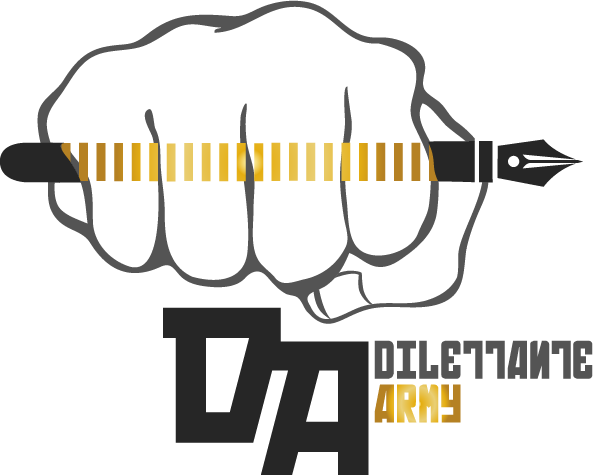
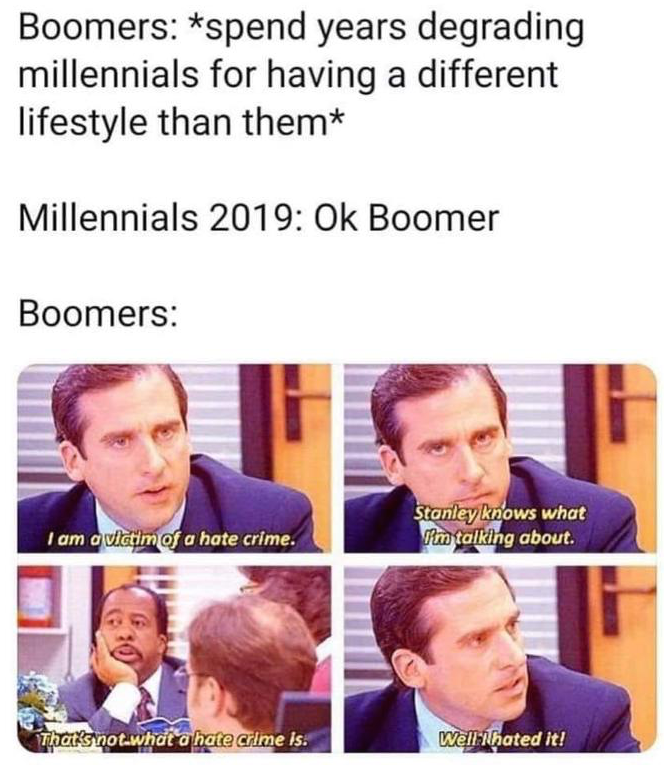
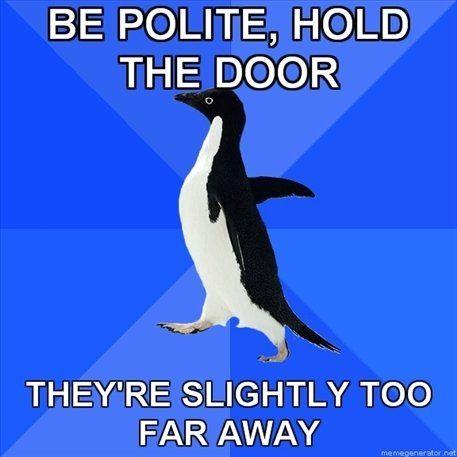
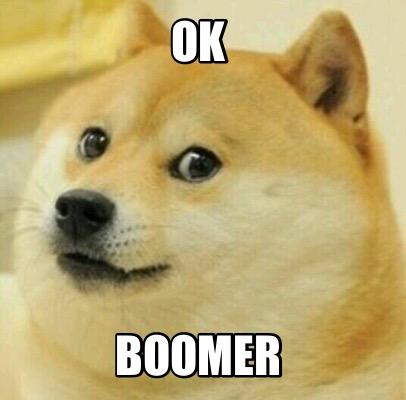
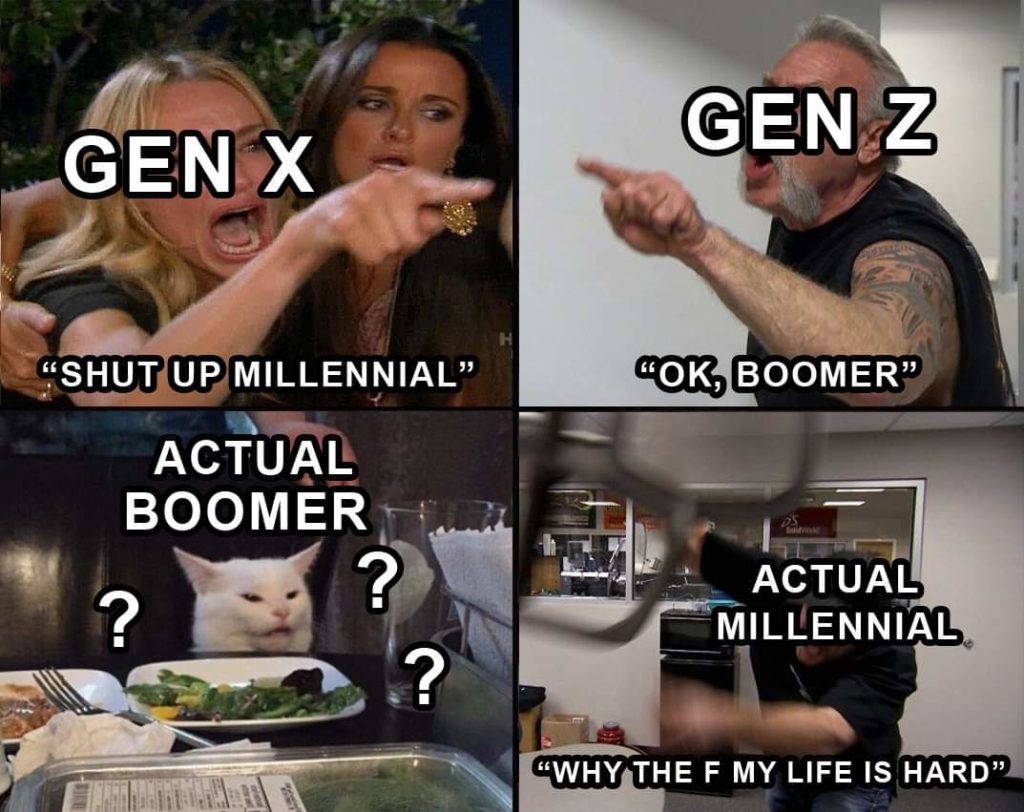

Dilettante Mail
Get updates from us a few times a year.